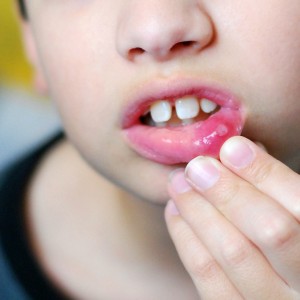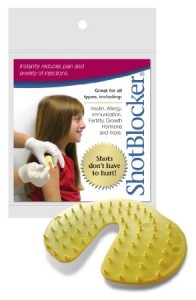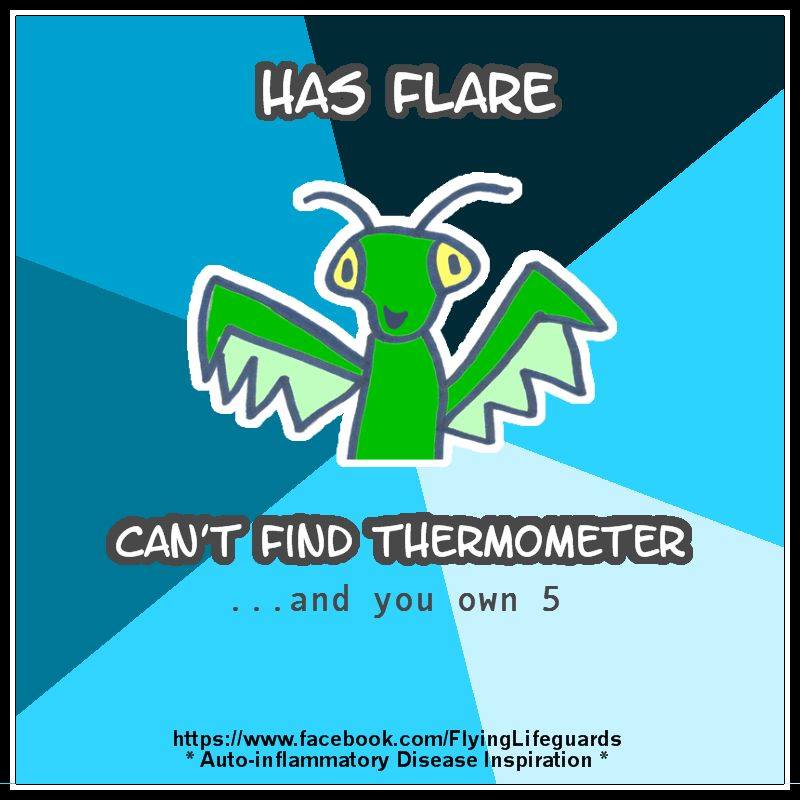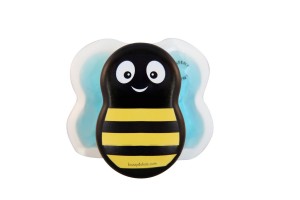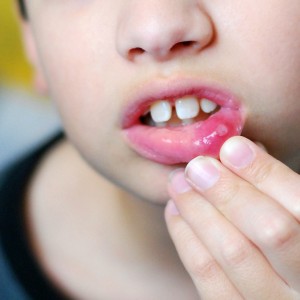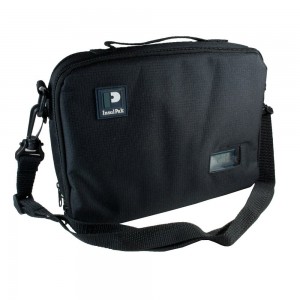Mouth ulcers, also commonly referred to as canker sores, are medically termed aphthous ulcers or aphthous stomatitis. They are white, grey, or red sores that can appear anywhere inside the mouth, including on the gums and inside of the lip. They are a common symptom in many recurrent fever syndromes, including HIDS, PFAPA, TRAPS, Familial Behcet-like autoinflammatory syndrome (Haploinsufficiency of A20) and Behçet’s disease. Patients with other autoinflammatory diseases, such as DIRA, may also develop mouth sores.
These sores are very painful and in some cases make it very difficult for the patient to eat and drink. Treating the underlying disease does help lessen the mouth sores. But many patients develop the sores even with treatment. Here are some mouth ulcer treatment and prevention options that many patients have found helpful in treating mouth ulcers due to autoinflammatory disease. Since each patient and disease is different, results will vary by individual.
As always, speak with your doctor before tying any treatment or supplement, as there could be interactions with your current medications, allergic reactions, and dosing concerns. Any of the listed treatments must be prescribed, or recommended by your doctor before initiating use of these medications. This information below is for discussion only-we are not recommending the use of any of these medications. That is for your doctor to decide.
Lysine
Lysine is an essential amino acid often used to treat canker sores. It comes as a pill or liquid and can be taken daily or only during outbreaks. It works best if taken before the ulcer develops. In some cases, early treatment may prevent the ulcer from fully developing. However, it can be taken to treat an active outbreak as well. Contact your doctor for what dose you can take.
Colchicine
Colchicine is a common prescription medication for familial Mediterranean fever, Behçet’s, and gout. While it may not prevent or treat flares in all systemic autoinflammatory diseases, it can help with some of the symptoms, such as preventing mouth ulcers.
Prescription Magic Mouthwash
Magic mouthwash is a prescription mouthwash that you use to rinse and then spit. It primarily contains lidocaine, which numbs the mouth. There are different brands available that may also contain hydrocortisone to reduce inflammation, the antifungal medication nystatin, an antibiotic, and/or the antacid magnesium hydroxide to coat the mucus membranes inside the mouth.
Milk of Magnesia and Liquid Benadryl
This is a liquid mouthwash you can make at home, but discuss this with your doctor before you begin using this treatment. Mix 1/2 teaspoon each of milk of magnesium and liquid Benadryl. Swish it in the mouth and then spit it out. Do not drink it. Some people mix it up, and squirt it into the mouth with an oral medicine syringe to coat the mouth, then spit it out.
Hydrogen Peroxide and Milk of Magnesia
Dab a drop of hydrogen peroxide mixed with water directly on the ulcer with a cotton swab. The National Institutes of Health (NIH) recommends mixing one part hydrogen peroxide to one part water followed by a dab of Milk of Magnesia directly onto the sore. You can do this three to four times a day.
B Vitamins
Folic acid and vitamin B12 deficiencies can cause mouth ulcers. A daily B vitamin supplement may help reduce or prevent mouth sores.
A Benzocaine Warning
In 2011, the FDA released a warning that using products containing benzocaine could lead to methemoglobinemia, a rare blood disorder. Most of the cases reported were in children under that age of two who were treated with benzocaine gel products for teething pain. Adult cases have also been reported. The FDA recommends that benzocaine products not be used on children younger than two without medical supervision.
Click here to learn the difference between a canker sore (mouth ulcer) and a cold sore.
References
- Drugs.com: Folic Acid
- Drugs.com: Colchicine
- Drugs.com Magic Mouthwash
- WebMD: Dental Health and Canker Sores
- Medline Plus: Canker sore
- PubMed Health: Folate deficiency
- PubMed.gov: Aphthous ulcers and vitamin B12 deficiency
- FDA: Benzocaine Topical Products: Sprays, Gels and Liquids – Risk of Methemoglobinemia


